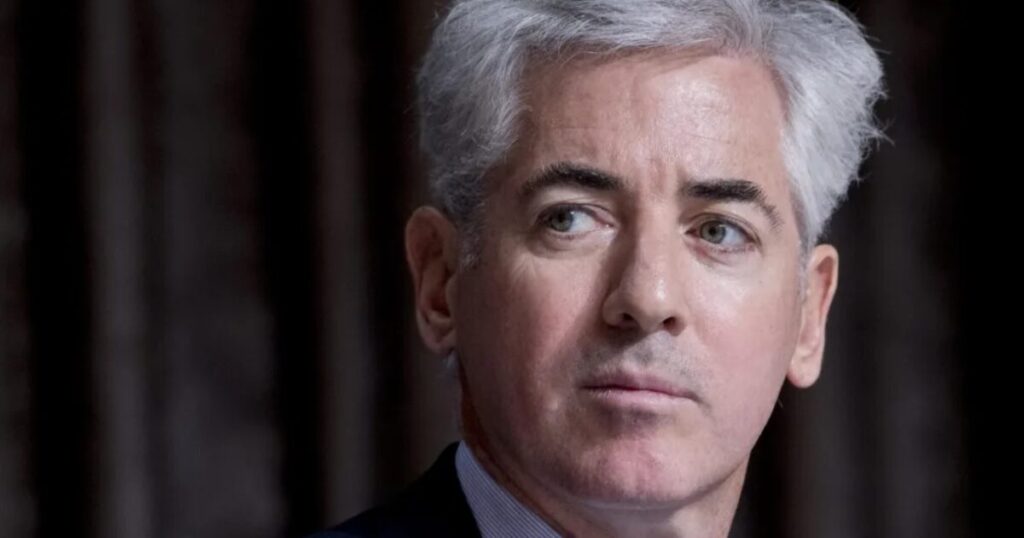Bill Ackman, a prominent hedge fund manager and long-time Democratic donor, startlingly announced his endorsement of Donald Trump for the upcoming 2024 presidential election. In earlier statements, Ackman expressed his discontent over the Democratic Party’s commitment to President Joe Biden for a second term, particularly after a viral video depicted Biden in a frail state. This led Ackman to criticize the party for what he perceives as a collective embrace of policies and decisions that are detrimental to the country’s welfare. In a detailed post, he elaborates on 33 policies and actions he believes threaten America’s stability and security, advocating for a merit-based evaluation of political candidates instead of a blind adherence to ideological lines.
Despite having a reputation as a centrist and historically aligning himself with Democratic ideals, Ackman insists that his motivations stem from a genuine commitment to the nation’s welfare rather than personal financial gain or aspirations for a governmental position. He openly rejects suggestions that his support of Trump is financially motivated or a route to power, affirming that he is secure and intends to donate the majority of his wealth to charitable causes. In the context of the polarized political landscape, Ackman’s choice to prioritize his evaluation of candidates over party affiliation reflects a deeper concern for America’s future. He emphasizes that his backing of Trump is rooted not in loyalty, but in a belief that Trump is the better candidate compared to the current administration led by Biden and Harris.
Ackman’s decision to support Trump follows what he views as significant failures by the current administration in handling issues related to governance, public safety, economic stability, and international relations. He outlined 33 critical areas of concern, beginning with immigration policies that he argues have overwhelmed local communities and strained existing resources. He links this issue to broader economic policies and increased spending under the current regime which, in his view, has exacerbated inflation and the national debt. This economic mismanagement, combined with perceived failings on foreign policy, notably the withdrawal from Afghanistan, prompted Ackman to lose faith in the Democratic leadership.
Further, Ackman is critical of various regulatory changes, including bail reform and the handling of shoplifting offenses, asserting that such policies foster a culture of lawlessness and undermine public safety. He is also concerned about energy policies that threaten the United States’ energy independence and promote costly and unnecessary regulations on American businesses. Ackman believes that these policies not only have immediate economic implications but also long-term impacts on the stability and prosperity of American society.
In terms of social issues, Ackman strongly opposes the promotion of diversity, equity, and inclusion (DEI) ideologies in hiring and education, arguing that this framework creates a divisive societal narrative. He also raises alarms over educational policies that he believes propagate harmful notions about gender fluidity among young children. These views resonate deeply with specific segments of the American populace who share his skepticism of radical sociopolitical changes being implemented without robust debate or consideration for potential consequences. His warnings, framed as attacks not only against the Democratic Party but against presumed external threats to national sovereignty, underscore a broader cultural conflict taking place within the United States.
Moreover, Ackman discusses various geopolitical issues, such as the administration’s handling (or lack thereof) of international terrorist negotiations and its impact on Israel, questioning the decision-making process and the implications of such actions on American foreign policy and global standing. He also highlights concerns about rising antisemitism and the perceived failure of governmental action to address such social issues. In detailing these points, Ackman positions his endorsement of Trump as a reasoned stance meant to counteract what he perceives as dangerous trends stemming from the current administration, advocating for an approach that prioritizes strengthening rather than undermining American institutions.
In conclusion, Ackman emphasizes that his decision to vote for Trump doesn’t equate to a blanket endorsement of all of Trump’s past actions, acknowledging the imperfections inherent in any political candidate. His choice, he argues, is a pragmatic one driven by his belief that a Trump presidency would better serve the interests of the country when considering the severe challenges presented by the existing administration. With a clear intent to share his rationale and invite critique, Ackman embodies a unique position within the current electoral landscape, urging others to consider the potential repercussions of policies that he views as actively harming American stability and confidence. Whether one agrees with his assessments or not, his emergence as an unlikely Trump supporter illustrates the complexities of political allegiance in an increasingly polarized environment.

